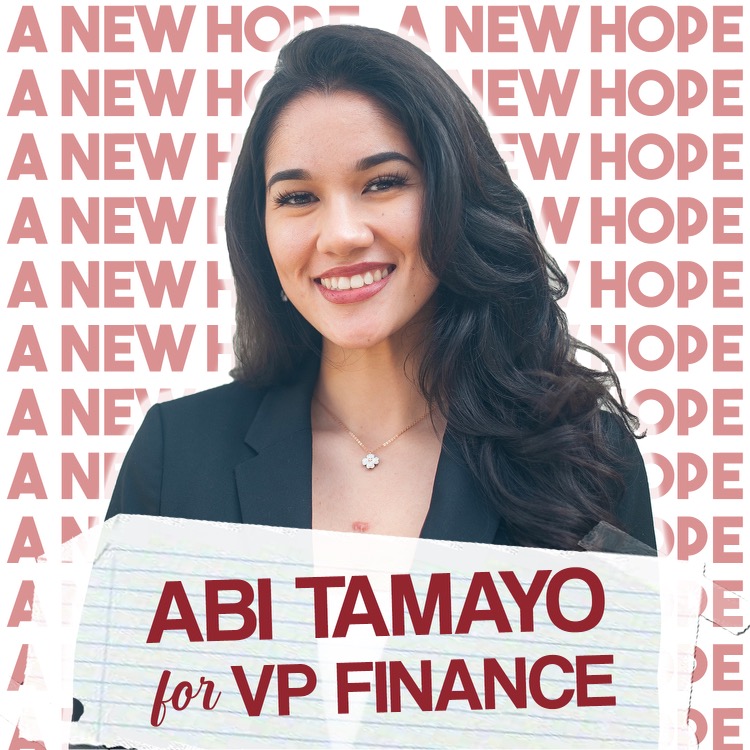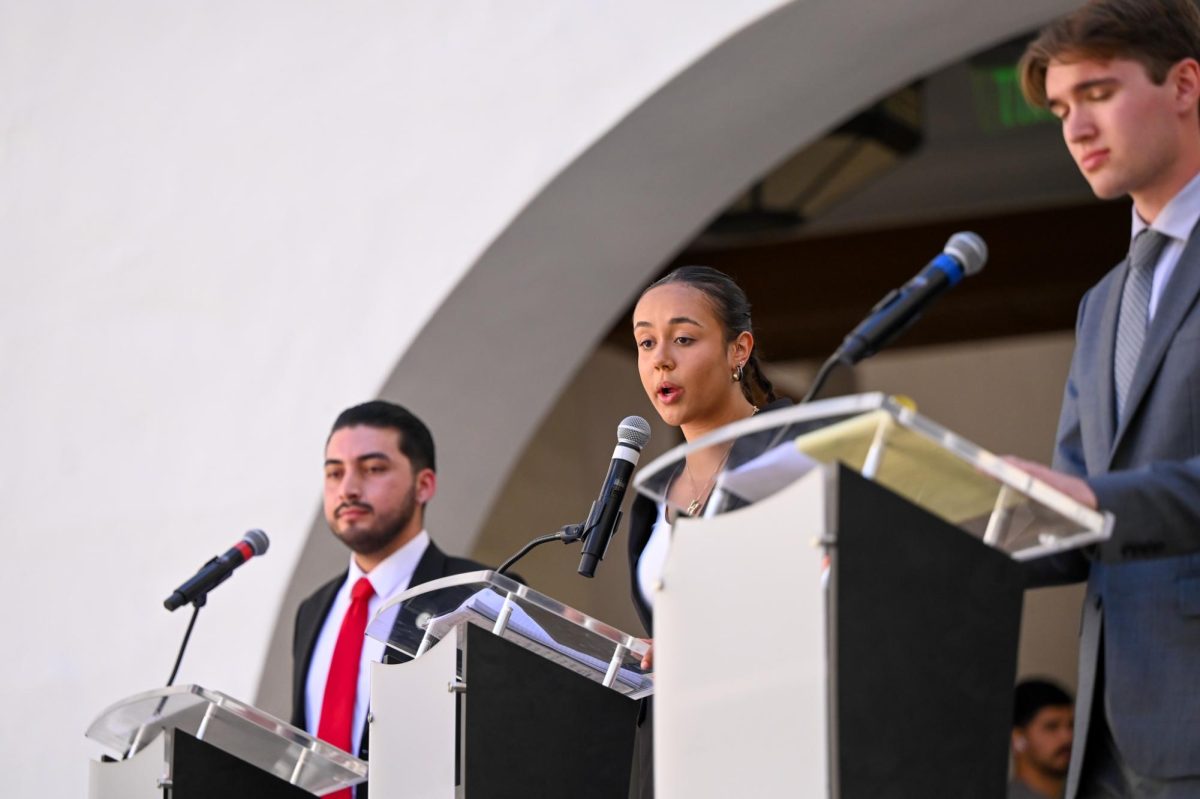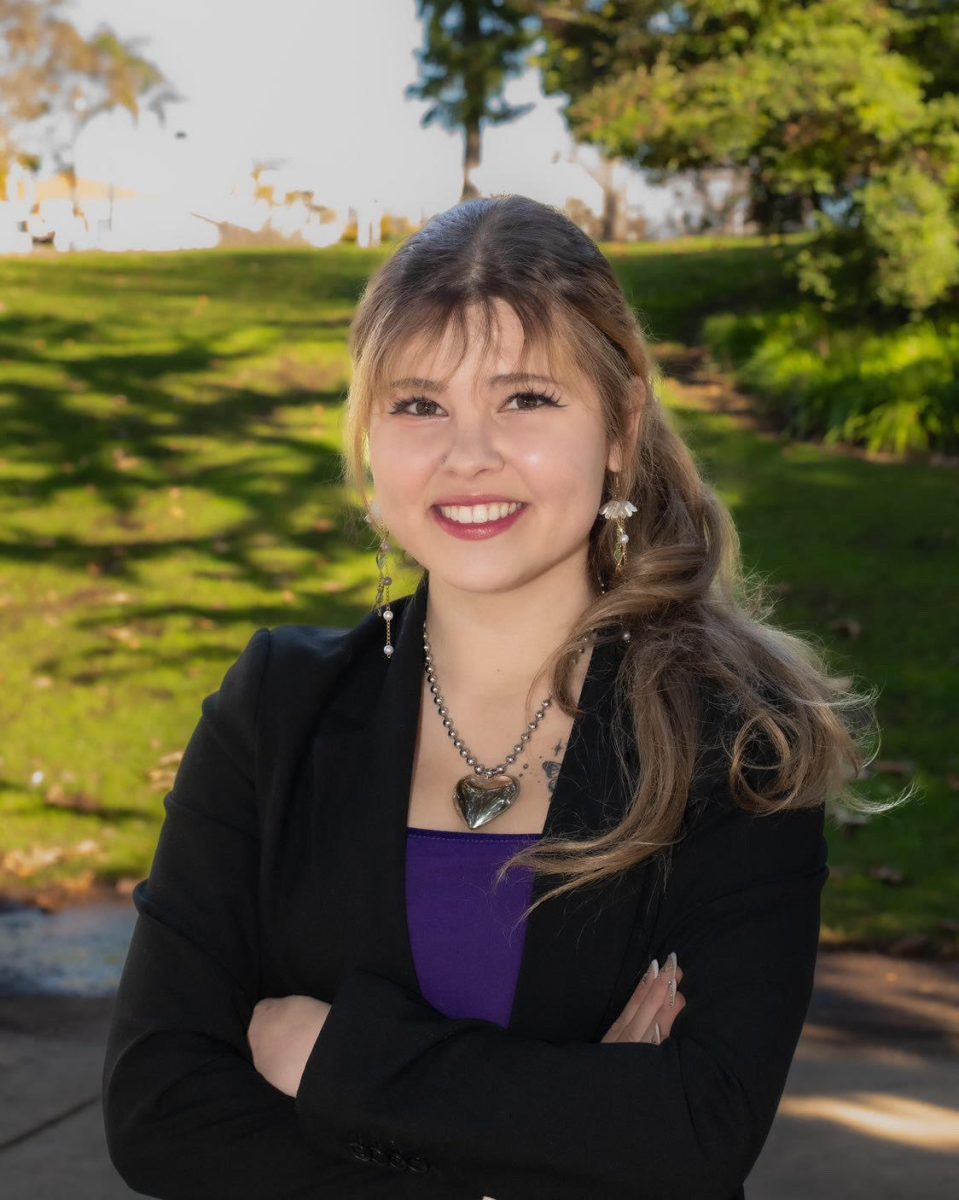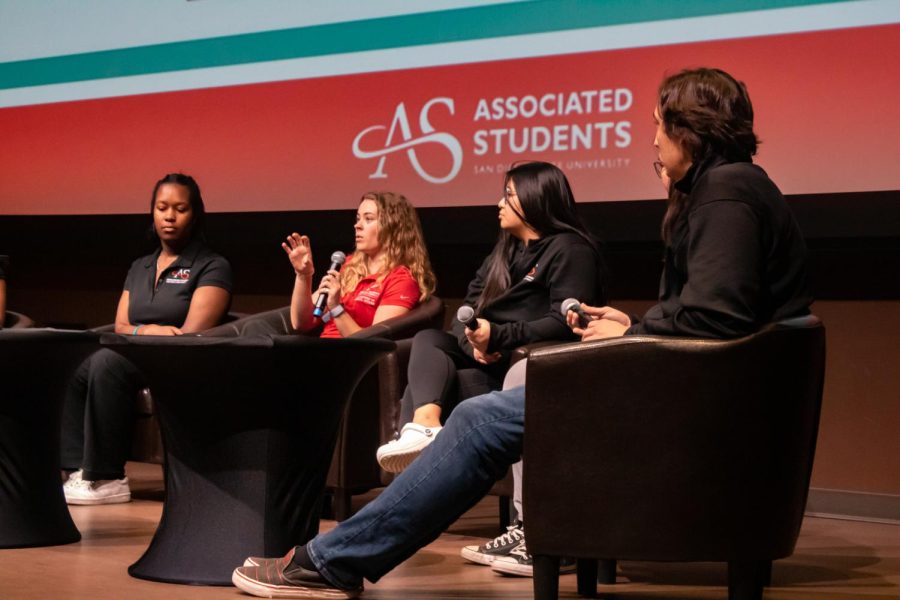Name: Abigail Tamayo
Position: Vice President of Financial Affairs
Slate: A New Hope
Year: Fourth year
Major: Sociology
Why did you decide to run for this position?
“I have first hand experience on how people of color are often not prioritized in their communities. I grew up in southeast San Diego in a community where I saw my high school lack educational opportunities, resources and environmental justice all because of a lack of funding. Seeing members of my community continue to struggle in higher education has really ignited a fire in me to advocate and constantly try to change that reality for folks like me.”
“As I got more involved in A.S. I witnessed firsthand how student fees hinder the progress of our low-income students and students of color who pursue education only to better their communities. I’ve seen how funds make or break a community, a person, and most especially a student, and I really aim to alleviate those financial hardships for students from all backgrounds.”
What makes you qualified for this position? What is your history with A.S.?
“As a Filipino-Mexican-American and a commuter student, I have always made it a goal to support students and make sure the voices of those who are underrepresented are present at every discussion. I was student support commissioner last year, and I would create videos to inform students on university resources. There was a submitted resolution and as a voting member, I sat and discussed whether we should approve it, and then I became commissioner to make an action plan for this resolution. This resolution was to initiate a program where students could aid other students by sharing their unused dining dollars at the end of the year and that money would go to the Economic Crisis Response Team.”
“I also partnered with local businesses to fundraise with March My Students and Communities — I did that through Tijuana Home Build. I continue to use my voice and meanings to prioritize student needs. Ultimately, I’m someone who knows what it’s like to have my voice oppressed because of my identities and I have dedicated my life to ensuring that those who come after me have better opportunities.”
What would you like to change at SDSU?
“A lot of students don’t know about this, and I just learned to discover it last year during my position as a Board of Director, but I sat on the Campus Fee Advisory Committee, which is faculty and students. I’ve seen these types of fees come into CFAC and they’re category four fees, which don’t require the approval of campus fee advisory committees, nor the student body, but are implemented regardless because they were unilaterally approved by President de la Torre with little to no student input. I believe that students should have the final say of whether these fees get implemented or not because they impact the students the most. It’s going to hinder students’ progress and cause financial hardships in the future. My experience in CFAC has given me insight on information that could potentially affect all students with the rise in fees in the upcoming years at SDSU.”
Can you name something you like and something you dislike about A.S.?
“I love the growing diversity and multitude of opportunities that it provides. I get to know more about different organizations on campus, and I love the organizations that cultivate meaningful and caring communities for people that have different identities. Being a commuter student, I really had to search for these opportunities, but everyone who I reached out to to help me get to where I am today were always so helpful and encouraged me the whole ride through. So, A.S. even puts in their own efforts in reaching out to students, and they’re very inclusive. I’m encouraging freshmen to be involved and being able to be in the same space as Dr. Dooley and all the people who are higher up and in charge, and being able to express my concerns to them is something I really like.”
“I think that (A.S.) needs to reach out to more students, and they shouldn’t expect students to reach them. I sat on the Financial Affairs Committee twice and learned that we had unallocated funds for organizations. I reached out to these organizations and they didn’t know about the funds. We’re not doing enough personal outreach. We’re not checking in with our cultural organizations and other organizations. Since being put in this position, I have connections with these organizations and I know those people that are trying to spearhead organizations. I know that we can get really busy, but we should allocate that time to be able to make sure that everyone knows this and is knowledgeable.”
What will be your top three priorities in this role?
“As a voting member of the Student Support Commission, we oversee the food pantry. Dustin and Noah worked really hard in assembling the food pantry together for students to be able to get food for free. I want to have a permanent and full time location for the A.S. food pantry that is accessible to all students. I know the food pantry is only open three days a week, which can be inconvenient for students who rely on this food and is a pressing matter now since we have more people around San Diego relying on those food sources. To make the pantry more well known, I’d like to rebrand it to have a permanent food market that can go hand-in-hand with creating jobs for students and just making it more of an eventful place, not so much where the stigma is but getting it to become more well known.”
“Secondly, providing students the opportunity to donate their meal plan to ECRT. I was in the works of this as student support commissioner, but I couldn’t execute it because of COVID. I had collaborated with Aztec Shops and we were ready to do the last week of the school year when everyone had leftover meal plan money, and they were going to go ahead and donate it, but it couldn’t happen. With this position, I could definitely execute it and I would be really excited to be able to do so.”
“Lastly, I’d continue to advocate to decrease campus fees. I know that 71% of students lost some or all of their income due to COVID while sitting on CFAC, and it’s those category four fees. The university is trying to propose a $25 no-show fee for those who miss appointments or don’t cancel 24 hours within, and it’s just strange to me because students already pay for these health services and their tuition, so I don’t understand they are trying to financially penalize students during a time like this. So, just making sure the university remains affordable and accessible.”







